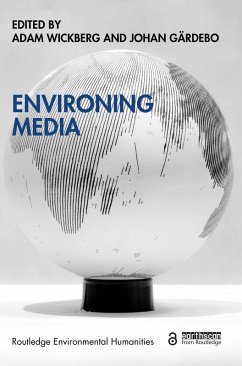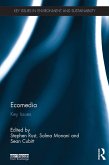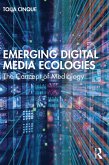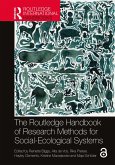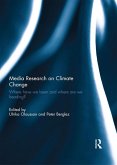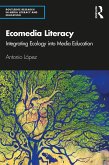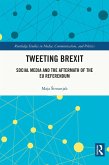Dieser Download kann aus rechtlichen Gründen nur mit Rechnungsadresse in A, B, BG, CY, CZ, D, DK, EW, E, FIN, F, GR, HR, H, IRL, I, LT, L, LR, M, NL, PL, P, R, S, SLO, SK ausgeliefert werden.
Jussi Parikka, in an excerpt from a review in Leonardo Journal
'Environing Media offers a conceptually rich and theoretically sophisticated exploration of media forms' role in shaping environments. Moving beyond the separation of nature and culture, the authors chart an array of new, mediated epistemologies for the planet. This text will be an essential contribution to the discourse on media and environment.'
Nicole Starosielski, New York University, USA
'Environing Media explores the history of relations between humanity and the Earth through a series of fascinating and far-reaching case studies. Environing technologies produce both environmental knowledge and environments themselves. In this novel and important book, the concept of environing media becomes a key that unlocks the interplay of ideas, technologies and physical transformations. Environing is the process of human shaping of the Earth, and it is environing media that has pushed the planet into the new geological epoch of the Anthropocene. From the record keeping of Spanish imperialism to debates about planetary boundaries and biosphere, from floating ocean robots to expedition to collect deep sea cores, from the diagrams of climate modelers to the air around us, Environing Media shows the critical importance of historical understandings of the interplay among technology, history and society.'
Bill Adams, University of Cambridge, UK, and the Geneva Graduate Institute, Switzerland
'Through rich case studies, this book offers new and important insights into the field of the environmental humanities and a broader understanding of the evolving human-Earth relationship. By drawing on examples such as climate scenarios, air pollution, oceanography, planetary vision, Human-earth histories, technospheres and media infrastructures, the chapters in the volume provide fresh perspectives and, in a witty way, reveal how media ties into the environment by rethinking the relationship between humans and nature. This is a book that deserves a wide readership in the field of environmental humanities and beyond.'
Birgit Schneider, Professor for knowledge cultures and media environments, Potsdam University, Germany

